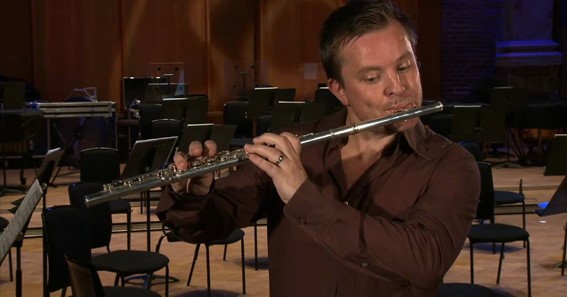The piccolo looks like a flute but is essentially half the size. It is a woodwind musical instrument, and while it has the same fingerings as a flute, it produces a much higher-pitched sound.
It comes with a cylindrical bore and special Boehm-system keywork. The piccolo is often a part of orchestras and military bands.
Playing the piccolo can also be a fun and unique hobby for you! Like all other musical instruments, learning the piccolo requires commitment and dedication. Playing it might even have mental health benefits for infants.
Let’s look over all the does and don’t of learning piccolo. You can also refer to Ted’s List for more information on buying a piccolo.
Is Piccolo The Right Instrument For You?
It can be hard to decide which instrument to pick to learn, especially when you are a complete beginner to the world of music.
In case you already know how to play the flute, then you should definitely learn the piccolo. However, a lot of flute players take up the piccolo just because it’s convenient and easy for them.
But you should consider if you are actually interested in learning the piccolo and will be able to put in the time and effort.
If you are completely new to learning musical instruments and want to learn as a hobby, then the piccolo is a great option. Once you get a grasp of the basics, the piccolo is very fun to play.
Even in group settings such as an orchestra, the piccolo allows you to both stand out and blend in with the rest of the orchestra. You can also practice at home and have fun trying out different methods to build your skills.
The piccolo is also not a super loud instrument like the drums. This makes it a good option if you live in an apartment and cannot risk making your neighbors angry.
Types Of Piccolos
You can choose between two types of piccolos; a metal piccolo and a wood one. The metal is cylindrical-bore and is easy to use for beginners.
While it has an unrefined sound, playing on a metal piccolo allows you to develop your skills. The metal type is also preferred by musicians who play for marching bands.
The wooden piccolo has a conical bore and produces a much sweeter sound. It also allows for a lot more dynamic flexibility when playing.
However, the wood piccolos can be fragile and may crack easily when used outside. Wood piccolos are mostly used by advanced and professional players.
How To Take Care Of A Piccolo?
In case you have a wood piccolo, you need to be especially careful with its maintenance. Wood piccolos can easily crack if the temperature is low. Do not use your piccolo if the temperature is below 65 Fahrenheit.
And in case it is below 70 Fahrenheit, you will have to find a way to keep the piccolo warm. You can do this by keeping it in contact with your hands or body. If your piccolo is in storage, make sure to blow some warm air into it before you play, this will ensure it does not produce any wrong notes.
You should also keep cigarette paper handy to ensure the holes do not get clogged by water. It is important to store the piccolo carefully as well; try to purchase an instrument stand with a base so you can keep it securely.
Should You Take Piccolo Lessons
In case you are a complete beginner, you may be confused about what is the best way to learn. While there are plenty of online tutorials and instructions, you can also choose to take piccolo lessons.
Taking lessons will allow you to get one-on-one attention and customized instruction. This will allow you to learn from your mistakes and improve at a fast pace.
However, lessons can be expensive and time-consuming. In this case, you can opt for online tutorials and courses. With these, you can learn at your own pace and save money.
This is the best option if you are learning casually and just want to play the piccolo as a hobby. In case you want to become a serious player and eventually become a professional, then good lessons and instruction will surely help you learn and flourish.
Final Thoughts
The piccolo is a unique instrument that is often mistaken for a ‘small’ flute. However, it is a proficient instrument that requires a lot of patience and dedication to learn.
After getting the hang of it, playing the piccolo can be a very rewarding experience as it allows you to play in a group setting and become the star of an orchestra.
Once you have decided that you want to learn the piccolo, make sure you purchase a suitable one. You should also consider if you want to learn at your own pace or take lessons.







